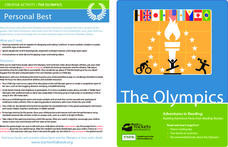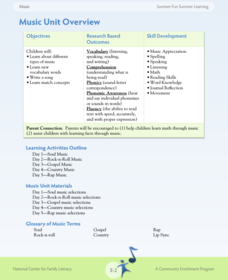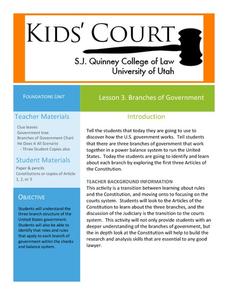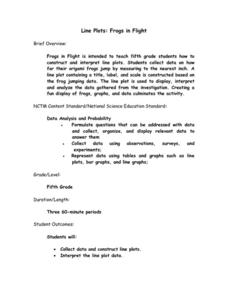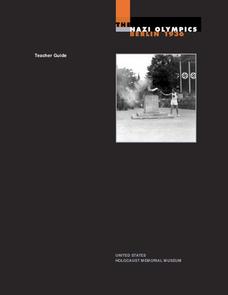PBS
Reading Adventure Pack: The Olympics
The mini Reading Adventure Pack takes a close look at the Olympics. After reading a fiction and nonfiction story, scholars research facts about the host country or a country of their choice participating in the games. The research...
Teacher Vision
Political Events and Summer Olympic Games
During an Olympics year, the world joins together to celebrate athleticism, patriotism, and history. Learn about the Olympiads of the 20th century with a research project in which groups research one year's Olympic Games. They note the...
Curated OER
Tracing Our Own Family Pilgrimages
The Pilgrims may have arrived in North America by way of the Mayflower, but chances are, your class members' ancestors came to the United States in another way. Guide them through an exploration of their own heritage, countries of...
Red River Press
Remembrance Day, Lest We Forget
Have we forgotten? As part of their study of Remembrance Day, class members consider whether countries have kept their promise not to forget and create their own remembrance ceremony.
National Academy of Sciences
Lights at Night Webquest
Help learners find ways to become more efficient energy consumers. To start, individuals research how different countries address energy efficiency and then analyze their own carbon footprint. They use their research to identify ways to...
National Park Service
Same Colors, Different Flavors
Who says getting to know your neighbors has to be difficult? The first resource in a three-part series creates an engaging project that teaches your scholars about Canadian culture. A question-and-answer format takes place via e-mail and...
Scholastic
Owl Moon Teaching Plan
Capture the engagement of young readers with this collection of activities based on Jane Yolen's book, Owl Moon. Following a shared reading of this children's story, the class explores the geography of the American Northeast,...
Alabama Department of Archives and History
A Worse Death: War or Flu?
In a lesson that integrates history and mathematics, class members create graphs that compare military death statistics from World War I with those that resulted from the influenza pandemic of 1918.
National Center for Families Learning
The Summer Fun Summer Learning Music Unit
Take note. Soul music. Gospel music. Country music. Summer comes alive with the sounds of music as program participants learn about various genres of music, create instruments, and write and perform songs about the facts and traditions...
US Institute of Peace
Advanced Mediation Practice
What will become of the giraffes of Amali? Pupils participate in a large scale role-playing activity to study the art of conflict mediation. The lesson engages participants in the struggle between two countries and the animals caught...
Amnesty International
Respect My Rights, Respect My Dignity: Module One – Poverty and Human Rights
Creating an environment where learners feel both educated and empowered challenges any teacher when discussing a sometimes bleak topic. A respectful resource provides them with the details and permits them to make a plan of action....
Curated OER
Lesson 3: Branches of Government
Young historians climb through the three branches of the US government in the third instructional activity of this five-part series. While reading the first three Articles of the Constitution in small groups, children write facts on...
Sprite Box
Lightbot Jr 4 Coding Puzzles
Learning how to write computer code has never been so much fun! Given control of their very own robots, children create simple programs in order to solve a series of challenges and develop their problem solving skills.
Intel
Energy Innovations
Collaborative groups examine the importance of energy resources on quality of life by researching different energy sources and alternative energy sources through data analysis. They make a comparison of different countries and cultures,...
US Institute of Peace
Making a Difference: Becoming a Peacebuilder
Being an agent of change is no easy task! What are some of the common challenges that peacebuilders face every day? The 14th portion in a series of 15 explores the lives of peacebuilders. Grouped pupils discuss these challenges before...
California Department of Education
Etiquette? What’s That?
Business etiquette is a big deal! Are your scholars prepared to impress in the business world? The third in a series of six college and career readiness lessons focuses on basic behaviors in business situations. Groups research specific...
NASA
Cleaning Water
Give young scientists a new appreciation of fresh, clean drinking water. After learning about the ways astronauts recycle their air and water, your class will work in small groups creating and testing their very own water...
National Endowment for the Humanities
Lesson 2: The United States, France, and the Problem of Neutrality, 1796–1801
While the French Revolution could be considered inspired by the American Revolution, it created thorny problems for the new United States. Should the United States get involved and be drawn into a European drama? Was the US strong...
National Security Agency
Line Plots: Frogs in Flight
Have a hopping good time teaching your class how to collect and graph data with this fun activity-based lesson plan series. Using the provided data taken from a frog jumping contest, children first work...
Vermilionville
Mardi Gras Elementary
You don't have to visit Vermilionville to experience the Cajun traditions of Mardi Gras. After examining pictures and hearing stories about these colorful traditions, learners create their own Courir de Mardi Gras masks.
Agency for Toxic Substances and Disease Registry
Don't Mess with Mercury (Lesson B)
At one point, people thought mercury was therapeutic for humans, but now we know it is highly toxic. The second of three activities covering mercury focuses on its health hazards if humans are exposed. Pairs research and answer questions...
Teaching Tolerance
Changing Demographics: What Can We Do to Promote Respect?
America has always been seen as a melting pot to the world. Scholars research the concept of blending cultures in the United States and how it is changing over time. The final lesson of a four-part series analyzes the changing...
US Holocaust Museum
Nazi Olympics: Berlin 1936
The Olympics are about more than sports—at times, the games are also a place of racism and prejudice! Pupils investigate the 1936 Olympics in Berlin, Germany. They analyze the meaning behind the materials included in the United States...
Concord Consortium
People and Places
Graph growth in the US. Given population and area data for the United States for a period of 200 years, class members create graphs to interpret the growth over time. Graphs include population, area, population density, and population...
Other popular searches
- Create a Country Project
- Create a Country Geography
- Create a Country Book
- Create a Country Lesson Plan


